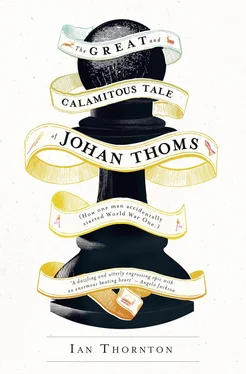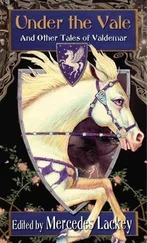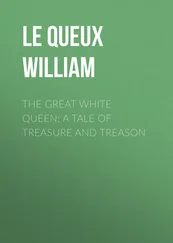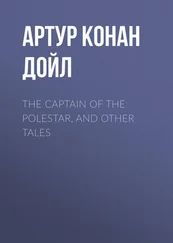The butterfly may well be unique in this characteristic on the planet—not just in the animal kingdom, but in the sphere of the spoken word , Johan Thoms said to himself. He said many things to himself, for his father had taken him to one side as a boy, and with a seriousness Johan could measure in his mind, told him that the man who shows off his intelligence without justification is the same braggard who boasts of the size of his prison cell.
A trawl of Johan’s university library years later would reveal that of the four hundred languages sourced there, no two words for “butterfly” bore any resemblance to each other, not even in such close cousins as Spanish and Portuguese.
“The only commonality is in repeated syllables, meant perhaps to display the symmetry of that fine creature. In Ethiopian, he is the birra birro , in Japanese, the chou chou , and among the Aborigines either the buuja buuja , the malimali , or the man man. ” (A very young Johan Thoms made this observation way before a certain Mr. Rorschach thought about boring us rigid with his diagram.)
Johan noted, too, that butterflies always seemed to be around whenever he thought of them. He entitled the essay “The Butterflies Flutter By.”
He was a weird little lad. And, without doubt, a time bomb.
Remorse, the fatal egg by pleasure laid.
—William Cowper
The feeling of friendship is like that of being comfortably filled with roast beef.
—Boswell’s Life of Johnson
September 1912
Johan Thoms packed up his books in Argona. At the age of eighteen, he had been accepted at the University of Sarajevo with the help of a scholarship—a major shaking of the kaleidoscope for young Johan, one might think, but not really. In Sarajevo he was only an hour from his childhood comforts, and he went rushing forward into dusty libraries while clinging to the past, returning at every opportunity to the Womb of Argona (a phrase he also used jokingly to refer to his mother). His determination to enjoy the present seemed to be dogged by his worry about the future and, more specifically, his desire to please his parents. He tried repeatedly to remind himself of his own theory of the Universe, and to live in the present. He tried to tell himself that what was done was done, that what will be was within his own control, and that there was no God to punish him for present, past, or future deeds. Within these seconds, he found peace of mind. However, it would take only somewhere between a fragment of a conversation and the distraction of a passing sparrow to lead his mind astray, and he would have broken his calming promise to himself.
* * *
Chess and soccer finally conceded to books.
Johan’s love of literature had been grounded in summer afternoons in the school glen reading Dickens with his favorite teacher, upon whom he had developed a crush at the age of ten. The class dissected English classics under the apple blossom trees, which in spring were whiter than the students’ bleach-white shirts. Johan was then rarely seen without a scabby novel or a yellowing library newspaper. Often he disagreed fiercely with what he read. When something made sense, he would slowly close his tome, his thumb keeping his spot, and ponder the newly found truth.
In his university years, he adopted the same technique for things with which he did not concur. Finally, differing opinions received more of his attention than those confirming his own often-stubborn beliefs. (Conversely, history professors claim that Pol Pot, Stalin, and Hitler read only books with which they already agreed, giving them an even more distorted vision of the world.)
Johan also stumbled upon a method of recording every required academic (and nonacademic) detail to memory. When his brain could take no more, he would stuff his face with vegetables, seeds, and legumes, pass a massive stool, and by this vacuum, create room for new knowledge. His theory was given extra weight when, at the age of nineteen, he read that Martin Luther had invented the Protestant religion while facilitating an extremely satisfying evacuation of his bowels. When he read The Hound of the Baskervilles , he was stunned to discover that Sherlock Holmes himself noted (on the subject of his Baker Street flat being thick with tobacco smoke), “I find that a concentrated atmosphere helps a concentration of thought. I have not pushed it to the length of getting into a box to think, but that is the logical outcome of my convictions.”
Johan took three seconds out of his life to imagine the fictional English demigod in a tiny fictional WC, a fictional shadow cast by his deerstalker hat, worn at forty-five degrees for the fictional duration of his ponderings.
Johan snapped back to reality as the word deerstalker scuttled through his brain. For what was he himself if not an erstwhile deerstalker? He wondered where his old pal Deer was now, and then asked himself if he thought he was normal.
He shuddered.
* * *
Johan Thoms found Anton Chekhov interminably dull and depressing, but knew that the old Russian had every reason to be down.
The French, he concluded, were far too pretentious, but then, like the rest of civilization, Johan didn’t gravitate toward them as a people anyway. Victor Hugo and Baudelaire were excused. When Johan read of a trial over the publication of Madame Bovary , Flaubert too found favor. He was granted special status when Johan read the judge’s summing up: “No gauze for him, no veils—he gives us nature in all her nudity and crudity.”
Anything banned or censored found its way onto Johan’s dustless shelves: Ulysses, Huckleberry Finn, The Scarlet Letter, Uncle Tom’s Cabin, Moll Flanders, Candide , and, latterly, Chatterley.
Goethe, Kafka, Dostoyevsky, Mary Shelley, Keats, Andersen, Zola, Yeats, Marlowe.
He worshipped Darwin for debunking God’s good book. Johan Thoms even shared a birthday with Darwin.
The work of Robert Louis Stevenson amazed Johan. He would enjoy many afternoon discussions of Stevenson with his personal tutor, Professor Tiberius Novac. Their main bone of contention involved Jekyll and Hyde. The professor insisted it was a tale of Victorian double standards. Johan found this far too obvious, and (not that he agreed with Stevenson) observed an anti-Darwinist angle to the story, the worrying implications of meddling with nature. When they weren’t discussing books, Johan was crushing Novac at chess. Tiberius would close his oak study door upon his student’s departure, locking in the magical smell of old volumes, and mop his brow as young Master Thoms marched proudly down the stone hallways.
On glorious afternoons in the fall of ’12 and spring of ’13, Johan and Novac would billet themselves out on the quadrangle lawn under the monkey puzzle trees. They were shaded, too, by the white berry tree, and enveloped in Moroccan jasmine, early spring breezes, and Johan’s budding optimism. In their discussions, Johan reveled in playing the role of Devil’s avocado (Ernest assured me that Johan did not mean to be funny here—his English was indeed flawed, albeit very rarely).
Novac tended to just smile and inhale the scent of a young yellow rosebush over his left shoulder.
Johan realized on one of these afternoons that the theory he had hatched in the hospital all those years before dovetailed perfectly with his disapproval of the Church.
“Life is all just either good luck or bad luck. If those idiots needed something to believe in for their afterlife and salvation, it only means that they are hedging their guilty bets. Ironically, they are the ones, their minds clouded with fear and guilt, who are unable to see the real beauty of the most wonderful coincidence in the Universe. And that is the Universe itself. These religious types, perversely, are too afraid to enjoy this wonderful set of moments, too constipated to witness the greatest glory. And so I resolve to make the present my god.”
Читать дальше











